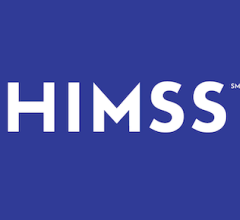
February 7, 2024 — The American Health Information Management Association (AHIMA) takes a significant stride into the future of healthcare with the launch of its AI Resource Hub, a pioneering resource aimed at providing health information (HI) professionals and industry stakeholders with a centralized source of knowledge and resources on non-clinical AI use in healthcare.
The healthcare landscape is witnessing a surge in the utilization of AI tools. AHIMA, committed to fostering the success of HI professionals, partnered with Alazro Consulting to conduct structured interviews. These interviews, comprising implementers and experts, have culminated in a groundbreaking white paper: "Artificial Intelligence Tools for Documentation and Other Non-Clinical Work in Healthcare."
AHIMA President/Chair Mona Calhoun, PhD, MS, Med, RHIA, FAHIMA, expressed enthusiasm in introducing the AI Resource Hub—a pivotal asset in the organization’s ongoing commitment to supporting HI professionals and navigating the transformative landscape of non-clinical AI in healthcare.
"This groundbreaking hub, combined with our comprehensive white paper, exemplifies our dedication to empowering our community with knowledge and insights as we collectively embrace the advantages and address the challenges of AI in shaping the future of healthcare,” said Calhoun.
The white paper reveals six key findings:
1. Growing Use of AI in Healthcare:
Healthcare organizations are increasingly adopting AI tools to enhance efficiency and streamline workflows. The white paper provides insights gathered through structured interviews with a diverse range of organizations, including providers, payers, and health IT vendors. The interviewed organizations collectively represent more than 200 hospitals and 1,000 clinics nationwide.
2. Scope of AI in Healthcare:
AI is also employed in clinical settings and across various non-clinical functions. The white paper categorizes these non-clinical functions into four areas: Health Information Management, Clinical Documentation Creation, Operational Supports, and Payer Tools. Examples of AI tools in each functional area are detailed, ranging from automated coding and records management to revenue cycle management and electronic prior authorization tools.
3. Balancing Benefits and Risks:
As AI tools become more prevalent, healthcare organizations face the challenge of balancing the benefits of automation with associated risks. The white paper emphasizes the potential efficiency gains and increased focus on higher-order tasks. Still, it underscores the importance of maintaining documentation integrity and record authentication to support clinical care and compliance.
4. Privacy, Security, and Unintended Bias:
While AI tools hold promise in improving care coordination and patient communications, interviewees stress the need for healthcare organizations to abide by privacy rules and ensure system security. The white paper discusses risks associated with unintended bias and over-reliance on technology, which can lead to harm.
5. Workforce Training and Governance:
The white paper underscores the necessity of upskilling the workforce to oversee and audit AI solutions. Survey data sponsored by AHIMA revealed that 75 percent of HI professionals call for upskilling, recognizing the opportunities AI provides for career advancement. Healthcare organizations are building governance structures to ensure adequate oversight, including risk assessment tools specific to AI deployment.
6. Policy Considerations:
Interviewees highlight the need for public policies to provide oversight of commercial AI tools. Policymakers are actively exploring ways to harness AI benefits while mitigating potential harms. Key issues under consideration include privacy, IT security, data governance, accuracy, provenance, prevention of harms (including bias), transparency, intellectual property rights, and patient matching.
As a leader, convener, and representative of the HI profession, AHIMA stands ready to work with policymakers and industry partners to ensure these transformative AI tools' safe and effective deployment. To delve deeper into the white paper's findings, AHIMA will host a webinar on February 7, 1 p.m. CT, as part of the 2024 AHIMA Workforce AI webinar series.
Visit the AHIMA AI Resource Hub to learn more about and stay current on non-clinical AI use in healthcare.
For more information: www.ahima.org


 February 13, 2026
February 13, 2026 









